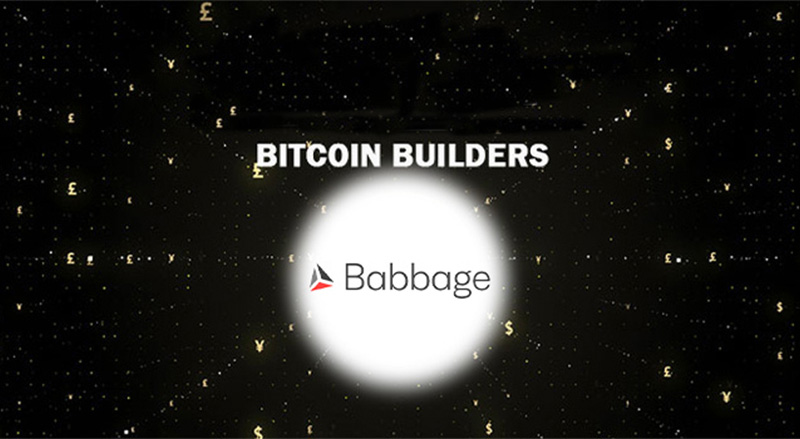In the latest episode of Bitcoin Builders, Bitcoin Association’s Brett Banfe had the opportunity to sit down with Ty Everett, the Founding President of Project Babbage, to discuss recent developments at the company and what to expect in the coming months.
Project Babbage is a collated set of standards that defines a new way for Internet services to give sovereignty and responsibility back to their users. Named after Charles Babbage, the creator of the first mechanical computer, Project Babbage uses the power of the BSV blockchain to lay the foundation for a new, better Internet built around the concept of a blockchain-based Metanet.
Being partially blind and dependent on specific aspects of technology to interact with the world, Everett is keenly aware of the role the Internet plays in social hierarchies and the danger of the current ‘data economy’ model used by the social media platforms that dominate our interactions.
Micropayments and app development
Everett said his team is currently focused on building various tools and systems to make micropayments as quick and seamless as possible.
One of them is a Metanet client, similar to a web browser, which acts as a piece of software that you have on your computer that allows you to:
- Engage with Metanet and make micropayments;
- Own your identity;
- Control certain encryption keys.
“So you can have digital privacy, digital signatures, and digital certificates from people around you and use those within the applications and services that you’re trying to interact with that want to tap into the client. The app will plug directly into that instead of you having to constantly input your username and password,” Everett said.
He added that his team is also working on several components geared towards app development and getting as many developers as possible working with this technology.
One platform – all of Bitcoin
As part of the interview, Everett also gave an overview of Project Babbage’s current tech stack and how they aim to offer a singular Bitcoin platform. These include:
Babbage SDK
The Babbage SDK is the core toolset that powers every Babbage app. It allows your app to utilise Action-oriented programming, encrypt and decrypt data with user-held keys, digitally sign and verify messages and files, and define economic models that pay you and your users for the value they create.
This library provides a client-side authentication solution that will let your application access a few cryptographic keys that belong to your users. You can use these for client-side encryption/decryption, authentication, signing, or even creating Bitcoin transactions.
Traditionally, Internet-based businesses have owned all their users’ data. They use this data for advertising, analytics, tracking and many other purposes. This library enables a new model—a model in which the users themselves remain the sole owners and custodians of the data they generate with your application. The same user will always have the same set of keys, even if they recover their account or log in on a new device.
Authrite
Authrite is a system for mutual authentication over a communications channel, enabling both parties to verify each other’s identity. It is designed to be flexible and scalable, allowing for the use of multiple certificates from different certifiers and the selective revelation of certificate information. It provides authentication for messages, but not encryption, allowing for confidentiality to be applied on a different layer if necessary.
It can be used in conjunction with HTTPS and other secure communication channels and is powered by the same secure algorithm used in Bitcoin. By offering a decentralised, secure alternative to centralised identity systems, Authrite is particularly appealing to those in the cybersecurity community who are concerned about online privacy and security.
Dojo and Ninja system
The Dojo and Ninja system is a set of tools and services for creating, managing and transacting with BSV blockchain. The Dojo component is responsible for managing UTXOs, while the Ninja component manages private keys and signs transactions. Together, these two components form a powerful system for working with Bitcoin, providing several features for developers.
NanoStore
Nanostore is a more reliable and cost-effective way of storing data with the BSV Blockchain.
Rather than storing your data on the blockchain itself, the task is offloaded to contracted service providers who commit to storing the hash of a file at a specific URL on the Internet. The commitment is tracked on the blockchain and you pay a very small amount of BSV for storage.
PacketPay
Everett also gave an overview of Project Babbage’s PacketPay solution. PacketPay is a BSV blockchain-based micropayments platform that allows businesses and developers to easily and securely accept payments for digital content and services.
PacketPay can be used to:
- Easily set up micropayments for access to premium content, such as articles, videos, and music;
- Set up and manage micropayments for small in-app purchases, such as virtual goods, currency, and power-ups;
- To offer subscription services on a pay-as-you-go basis, allowing customers to only pay for the services they use, rather than committing to a long-term contract;
- To easily set up and manage micropayments for software licensing, allowing customers to purchase access to your software on a pay-as-you-go basis, rather than committing to a long-term contract.
Watch the full interview
You can watch the full interview with Everett where he goes into more depth about project Babbage’s offerings below:
